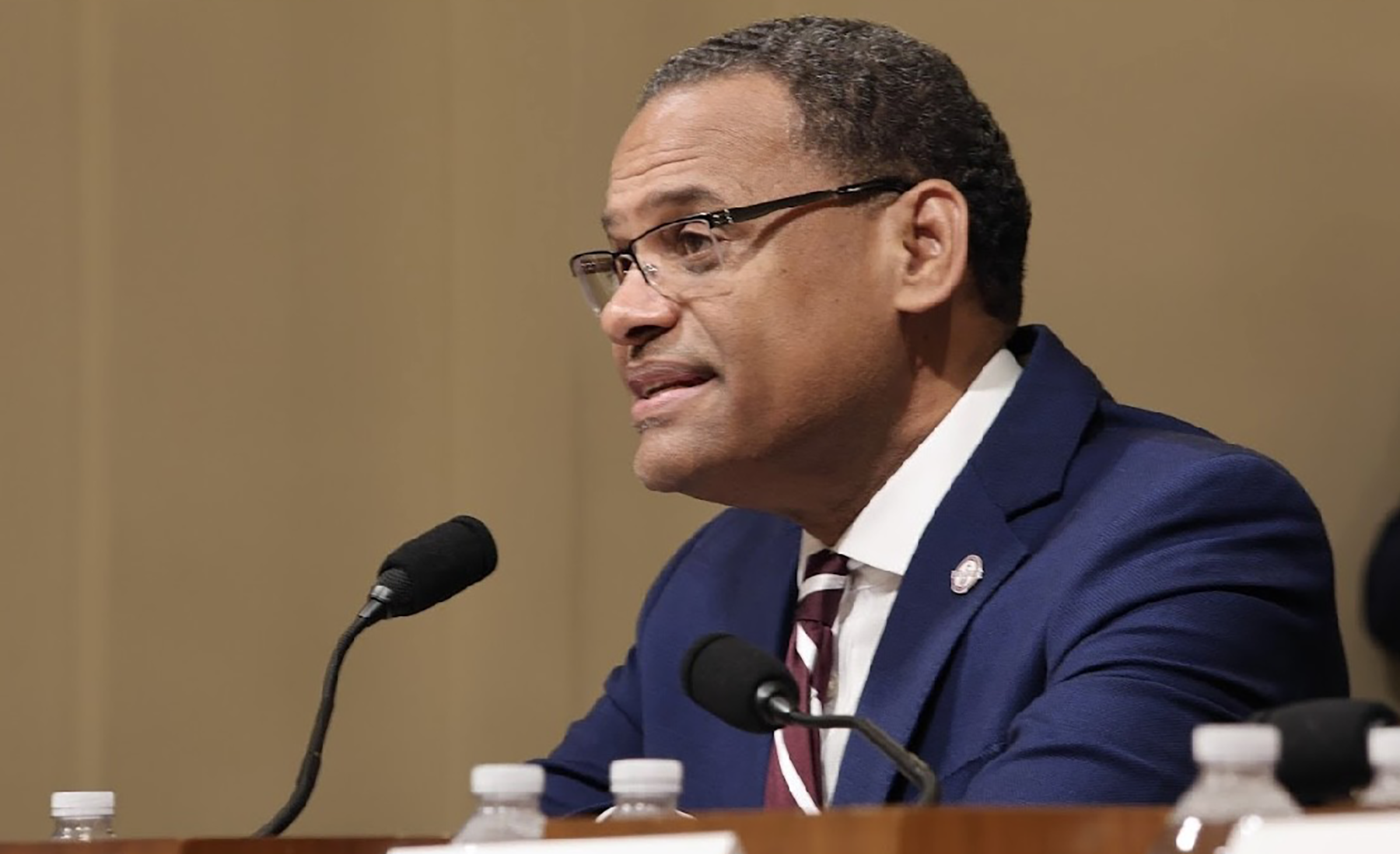In an Effort to Protect Southern Agriculture from Emerging Threats, AAMU President Calls for Stronger Funding, Research, and Innovation to Secure Nation's Food Supply

AAMU President Testifies Before Congress
Alabama A&M University (AAMU) President Daniel K. Wims testified before Congress Tuesday on the urgent need to strengthen America’s agricultural defenses against emerging threats.
He appeared before the House Homeland Security Subcommittee on Emergency Management and Technology during its hearing, “Surveying the Threat of Agroterrorism: Perspectives on Food, Agriculture, and Veterinary Defense.”
Wims was introduced by Subcommittee Chairman Rep. Dale Strong (R-AL), a former Madison County Commission chair, who praised Alabama A&M and Auburn University as “pillars of strength” in the state.
When asked to share his concerns about foreign acquisitions of farmland and the biggest risk when adversaries acquire U.S. farmland, Wims responded with “Our farmers and producers throughout the Southeast are very open and very vulnerable. If they lose a season, they essentially lose the means to support their families and maintain their farms. Awareness, education, and technical assistance are essential through our Cooperative Extension System, but that requires funding and stronger collaboration between research and extension, particularly against the terrorism dangers we face.”
Additionally, he emphasized that securing America’s food system demands funding, resources, research, and time and he urged lawmakers to support strategies that merge traditional agriculture with modern technology. “We think that awareness as well as education and technical assistance with very clear and concise research to produce data driven information from our researchers, but as my colleague on the panel said, that requires funding, and there has to be a better and closer collaboration between research and extension particularly relative to terrorism dangers that we face. The challenge with us is being able to marry the agricultural sciences and research extension agents with our computer scientists and those professionally prepared in artificial intelligence and cybersecurity. We have not done a good job with that,” said Wims.
Drawing from his own campus perspective, Wims also underscored food system vulnerabilities.
“We need systems in place – artificial intelligence, cybersecurity – to protect not just production but also the distribution, dissemination, and storage of food. I also think that the type and way that we produce, process and then distribute food and has to be carefully studied in terms of the dangers that we face relative to a potential threat having access to food systems and the way that we distribute and store food,” he added.
Wims testified alongside a panel that included Cris Young, DVM, MPH, DACVPM, COL USA (Ret.), professor of practice at Auburn University’s College of Veterinary Medicine; Marty Vanier, DVM, director of the National Agricultural Biosecurity Center at Kansas State University; and Asha M. George, DrPH, executive director of the Bipartisan Commission on Biodefense.
Together, they called for expanded research, stronger partnerships, and sustained investment to guard against disruptions to America’s food supply.
About Alabama A&M University (AAMU)
Founded in 1875 by former slave, Dr. William Hooper Councill, Alabama A&M University (AAMU) is the largest Historically Black College and University (HBCU) in Alabama. As a traditional 1890 land-grant institution, “The Hill” is a dynamic and progressive institution with a strong commitment to academic excellence and is the state’s largest producer of minority STEM graduates. Additionally, it is student-friendly and community-focused and functions as a teaching, research and public service institution, including extension. AAMU provides more than 60 undergraduate, graduate and certificate programs and concentrations, a diverse international faculty, 50 plus student organizations, and an extensive alumni network comprised of politicians, educators, entrepreneurs, doctors, lawyers, engineers, scientists, authors, artist, and more, many of whom are change agents on the local, national and international stage.